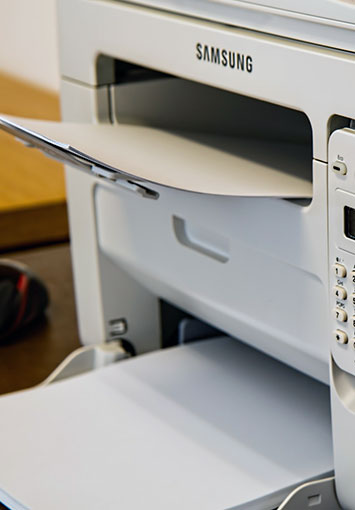Records Management Knowledge Center
Learn how to manage, organize, and store your critical data more efficiently.
Improving the accessibility and security of your data doesn't need to be difficult. Our knowledge base contains all the information you need to make informed decisions when its time to modernize your records management practices.
Once a ubiquitous solution for preserving important documents, microfilm was, at one time, the go-to storage medium for libraries, legal firms, healthcare institutions, and government agencies.
However, the scarcity of microfiche readers and scanners today can make accessing and using this data challenging.
During the document scanning process, businesses typically extract the most important information from their records to store it digitally as metadata. This metadata can later be used for searching, categorization, or analysis for various purposes. In most cases, Optical Character Recognition (OCR) technology is the go-to solution. However, there are instances where OCR might not
Data security is more important today than ever before. The internet is rife with cybercriminals looking to exploit any vulnerability they can, so that they can access, misuse, or even sell sensitive information for a profit. Personal information like financial records, medical information, and confidential business documents are all prime targets for these malicious actors.
In the construction industry, dealing with the large volume of paperwork generated for each project can be a challenge. From blueprints and contracts to permits and inspection reports, construction businesses handle a wide variety of documentation on a daily basis. As these documents pile up over time, managing them becomes increasingly difficult, especially when relying
Businesses transitioning from paper to digital record-keeping have a unique opportunity to greatly enhance the security and safety of their documents. This is, after all, one of the biggest factors driving businesses to invest time and resources into the process. In order to take full advantage of the exciting possibilities that come with going paperless,
Preparing for a large document scanning project can seem daunting, especially if it’s your first time. Many businesses find themselves feeling a bit lost, unsure of their role in the process and what needs to be done beforehand. Don’t worry, getting ready for your project is a lot easier than you might think. In this
The management of medical records is a crucial aspect of healthcare, impacting both patient care and administrative efficiency. Due to the enhanced efficiency and accuracy offered by electronic records management, a growing number of medical practices have adopted digital record-keeping, a move that reflects the industry’s broader digital transformation. When providers make the transition from
With so many factors to consider, choosing the right document scanning service for your business can be a complex process. From the volume of documents to be scanned to the nature of the material (be it sensitive or confidential), each service offers distinct features and benefits. However, by understanding the nuances of the many different
Mobile scanning apps have seen a huge surge in popularity in recent years, and that’s no surprise. Not only are most people doing more things digitally, but the convenience of scanning your documents with a device that, let’s be honest, is rarely more than three feet away at any given time, is a pretty convenient
Whether you’re archiving important paperwork, sharing files across different platforms, or ensuring compatibility for future reference, understanding how to convert your scanned documents into PDFs is key. This article will guide you through a few simple but effective methods to achieve this with both free and paid software, ensuring your scanned documents are not only









